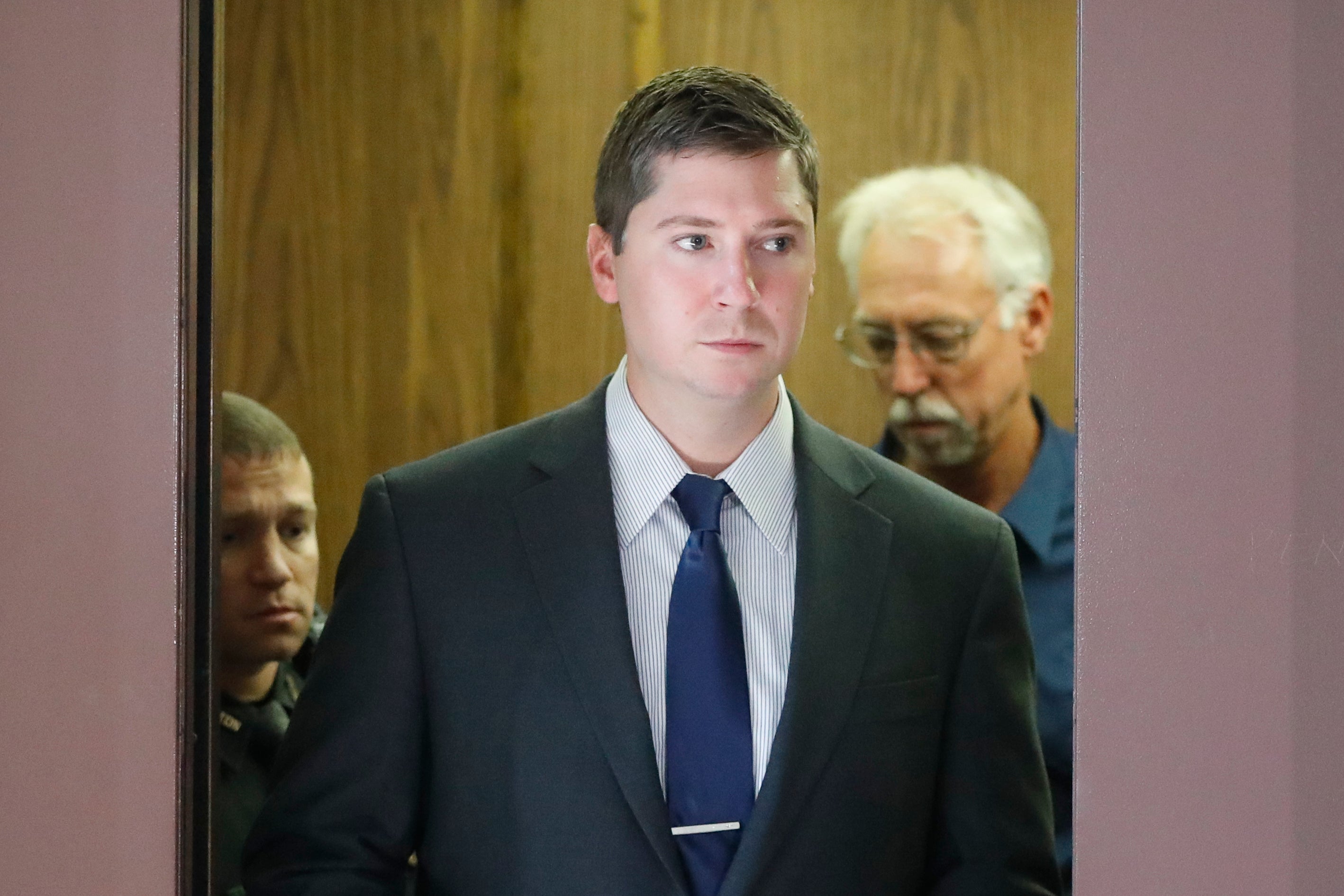
This article was originally published on TIME.
(CINCINNATI) — A judge declared a mistrial after a jury said it was deadlocked Saturday in the case of a white former police officer charged with murder in the fatal traffic stop shooting of an unarmed black motorist.
The Hamilton County jury had deliberated some 25 hours after getting the case at noontime Wednesday following Judge Megan Shanahan’s instructions. University of Cincinnati police officer Ray Tensing shot 43-year-old Sam DuBose in the head after pulling him over for a missing front license plate on July 19, 2015.
Tensing, 26, testified he feared he was going to be killed. Prosecutors said repeatedly the evidence contradicted Tensing’s story.
The jury of 10 whites and two blacks was seated Oct. 31.
Shanahan said Saturday that the jury spent two hours deliberating Saturday morning after getting a night’s sleep and still could not reach a decision.
“It’s obvious to me you have made a sincere and contentious effort,” the judge said before setting a new hearing date for Nov. 28 to determine whether the case will re-tried.
The shooting is among those across the nation that have raised attention to how police deal with blacks.
To convict Tensing of murder, jurors would have had to find he purposely killed DuBose. The charge carried a possible sentence of 15 years to life in prison.
Legal experts say juries generally tend to give police officers the benefit of the doubt because of the inherent dangers of their jobs, but that they will convict if the police actions were clearly unwarranted.
In tearful testimony Tuesday, Tensing said his arm was stuck in DuBose’s car after he tried to stop him from driving away by grabbing the car keys.
Subscribe to our daily newsletter for the latest in hair, beauty, style and celebrity news.
“I remember thinking, ‘Oh my God, he’s going to run me over and he’s going to kill me,’” Tensing said.
An expert hired by prosecutors said his analysis of the former officer’s body camera video shows the officer was not being dragged by the car. A defense expert countered that the video shows Tensing was justified in fearing for his life because his body was “violently twisted” during the confrontation.
Hamilton County Prosecutor Joe Deters suggested in questioning that Tensing had racial motives, saying a study found that eight of every 10 drivers Tensing pulled over for traffic stops were black, the highest rate of any University of Cincinnati officer. Tensing also made more traffic stops and citations than other UC officers. Deters also pointed to a T-shirt with Confederate flag on it that Tensing was wearing under his uniform the day of the shooting.
Tensing said he was often unaware of a driver’s race, did not single people out unfairly and was not racist. He testified that the Confederate flag on his T-shirt had no meaning to him.
The trial was conducted under beefed-up security, and city officials had met with civil rights and faith leaders in the weeks before it began in hopes of reducing unrest. The city suffered 2001 riots sparked by the fatal shooting of 19-year-old Timothy Thomas, a black man who was wanted on misdemeanor warrants and was fleeing from police. Hundreds of people were arrested in the several days of violent protests that caused millions of dollars in damage.
The University of Cincinnati fired Tensing last year after his indictment. It has restructured its public safety department and made other policing reforms. The university reached a $5.3 million settlement with DuBose’s family, including free undergraduate tuition for DuBose’s 13 children.
DuBose had significant amounts of marijuana and cash on him, and defense attorney Stewart Mathews contended that was why he was desperate to get away. DuBose had a lengthy history of convictions, mainly marijuana or traffic-related.
Tensing had about three years of suburban police experience before joining the UC police in 2014. He had no record of using deadly force.
Mathews had asked to move the trial to another county, contending Tensing couldn’t get a fair trial in Hamilton County because of extensive pretrial publicity and what he said were prejudicial comments made by the county prosecutor and several city officials. Deters, when announcing the indictment last year, called Tensing’s decision to shoot “asinine” and “senseless” after a “chicken-crap” traffic stop.
While the Tensing case concluded, trial continued in South Carolina for white ex-patrolman Michael Slager, charged with murder for the April 2015 death of Walter Scott, a black man shot in the back as he fled for a North Charleston traffic stop.